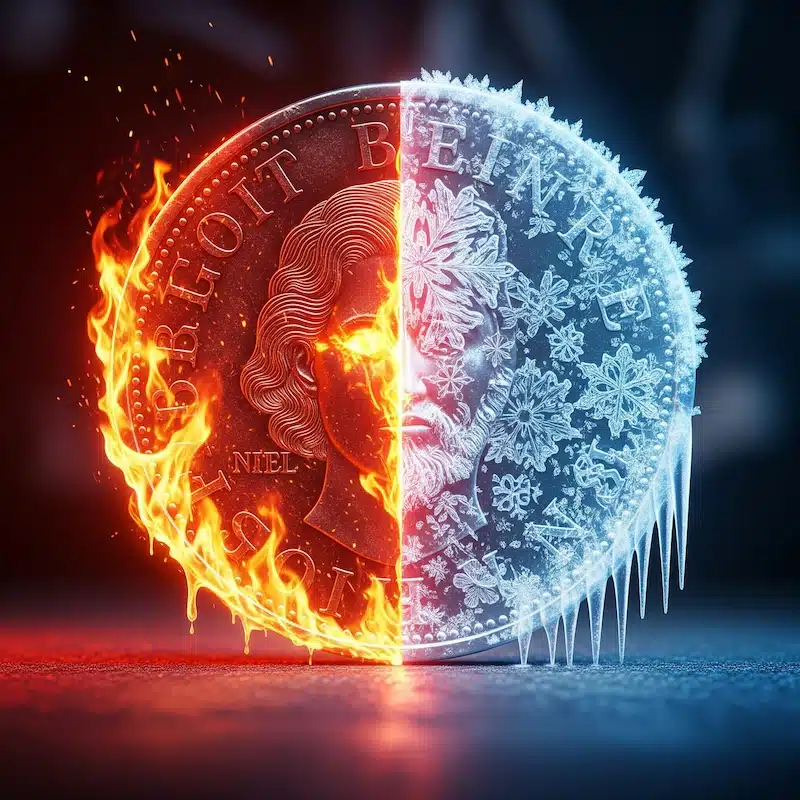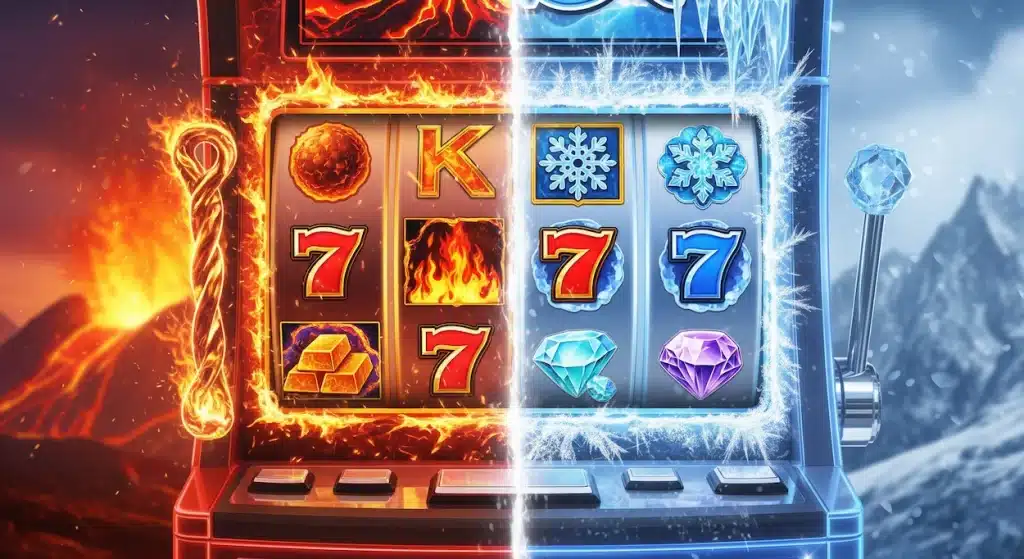The world of online slots is a thrilling and fast-paced one, filled with dazzling graphics, immersive sound effects, and the tantalizing possibility of a big win. As you spin the reels, you might find yourself observing what seems to be a pattern: a slot game paying out frequent, large wins, leading you to believe it’s “hot,” or a game that seems to be eating your bankroll without a single decent payout, which you might label as “cold.”
But is there any truth to this idea of hot and cold slots? Let’s dive into the fascinating reality of how online slots work and what’s really behind these perceived streaks.
The “Hot” and “Cold” Sensation: A Psychological Phenomenon
The terms “hot” and “cold” are a gambler’s way of describing short-term fluctuations in a game’s performance. A “hot” machine is one that’s been on a winning streak, while a “cold” one has been on a losing streak. This perception is a classic example of what psychologists call the “clustering illusion”—the human tendency to see patterns and streaks in a series of random events.
Think of it like flipping a coin. If you get heads five times in a row, you might feel like the coin is “hot.” However, the probability of getting heads on the sixth flip is still exactly 50%. The previous flips have no bearing on the next one. The same principle applies to online slots.

The Unseen Engine: Random Number Generators (RNGs)
The reason the “hot and cold” theory is a myth is because of the Random Number Generator (RNG). This is the heart of every legitimate online slot game. The RNG is a complex computer algorithm that is constantly generating sequences of numbers at an incredible speed, even when no one is playing.
When you hit the “spin” button, the RNG instantly determines the outcome of that spin. The result is completely random and independent of all previous spins. It doesn’t matter if the slot just paid out a jackpot or hasn’t paid a dime in an hour. Each spin is a fresh, new event with the same odds as the last.
Online casinos and their game providers are required to have their RNGs tested and certified by independent third-party auditors to ensure fairness and randomness. This is a crucial part of what makes online gambling trustworthy in regulated markets.
What Really Influences Slot Outcomes: RTP and Volatility
Instead of looking for “hot” or “cold” cycles, a smarter approach is to understand the two key factors that actually define a slot game’s behavior over the long term: Return to Player (RTP) and Volatility.
- RTP (Return to Player): This is a theoretical percentage that indicates the amount of all wagered money that a slot game is expected to pay back to players over an extended period of time. For example, a slot with a 96% RTP is designed to return $96 for every $100 wagered over millions of spins. It’s a long-term average, not a guarantee for a single session. Higher RTP is generally better for players.
- Volatility (or Variance): This refers to the risk level of a slot game.
- Low Volatility Slots: These games pay out more frequently, but the wins are typically smaller. They’re great for players who want to extend their playtime and enjoy a steady stream of smaller wins.
- High Volatility Slots: These games pay out less frequently, but when they do, the wins can be significantly larger. They are for players with a larger bankroll and the patience to endure longer dry spells in pursuit of a big jackpot.
The Bottom Line: Play Smart, Not Superstitious
The idea of “hot” and “cold” slots is a compelling one, and it’s easy to fall into the trap of believing a pattern exists when you’re on a winning or losing streak. However, the reality is that every spin is an independent event governed by a highly sophisticated Random Number Generator.
By focusing on facts like RTP and volatility, you can make more informed choices about which games to play and how to manage your bankroll. Remember, the key to a fun and responsible online slot experience is to treat it as entertainment, not a guaranteed way to make money.
Happy spinning!







